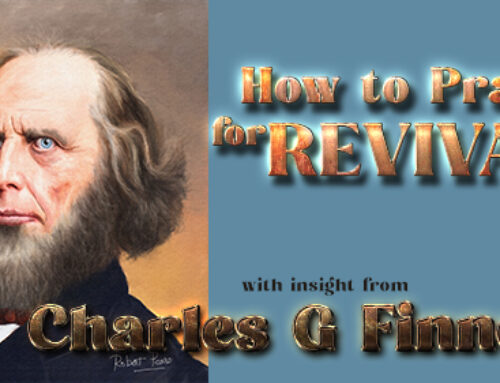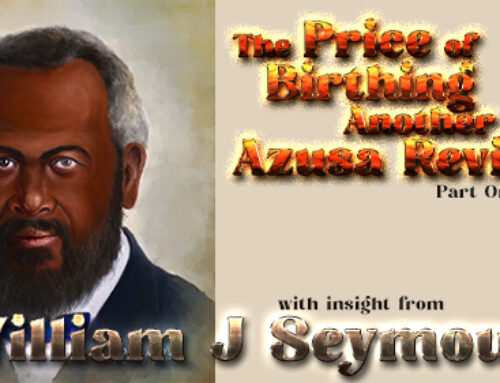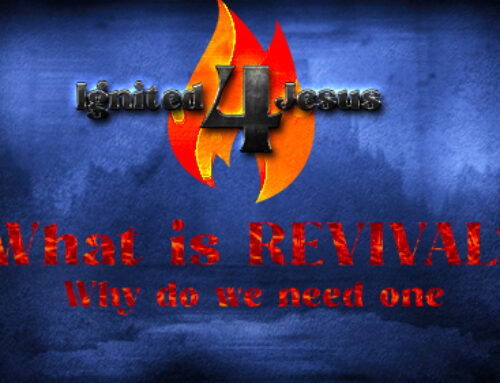What Is a Real Revival
Maybe you have heard the term or seen people talking about it, but what is a revival? If we are going to say we need revival, we must first understand revival. So, I want to share reports from revivals and help to define them for you.
Peter said during his second sermon:
“Repent therefore and be converted, that your sins may be blotted out, so that times of refreshing may come from the Presence of the Lord.”
Acts 3: 19
Please note that Peter said, “times of refreshing.” We need times of refreshing from the Presence of God or revivals. Erle Cairns, the revival historian, stated:
“I define revival or renewal as the work of the Holy Spirit in restoring the people of God to a more vital spiritual life, witness, and work by prayer and the Word after repentance in crisis for their spiritual decline. The permanent elements in revivals are the Word, prayer, the Holy Spirit, and a sovereign God who uses man as his instrument.”
In reading what Peter said, we see that the critical ingredient is a repentance or returning to the Lord, and that the revival or refreshing comes from the Presence of God. When it comes to revival, you can’t manufacture them, force them, and all true revivals are marked by repentance and a deepening of the spiritual life.
Listen to these words of Paul:
“I was with you in weakness, in fear, and in much trembling. And my speech and my preaching were not with persuasive words of human wisdom, but in demonstration of the Spirit and of power.”
1 Corinthians 2: 3, 4
It was not Paul’s impressive preaching that won over the people, but the operation of the Holy Spirit. I see many people who do missionary work, and I feel sorrow for them. It is hard work, and to do it without the Holy Spirit, it would be impossible.
Earle Cairns also said:
“Revival may take place in an individual, a family, or a congregation, such as Jonathan Edward’s Massachusetts congregation in 1734 and 1735. Cities may be revived, as Rochester, New York, was under Charles Finney in 1830 and 1831.”
He added:
“Renewal of the vertical spiritual relationship of Christians with God has resulted in a more meaningful horizontal relationship of Christians with man, a relationship in witness, social reform, and true ecumenicity of spirit.”
If I go back to Ulster, Northern Ireland before the revival of 1859, we were told regarding the spiritual climate:
“Hitherto,’ says the minister of one of them (congregations), ‘our condition was deplorable. The congregation seemed dead to God, formal, cold, prayerless, worldly, and stingy in religious things. Twice I tried a prayer meeting of my elders but failed; for after the fifth or sixth night I was left alone.”
Here is another account:
Before this, our day of merciful visitation, Bellaghy was the most degraded of Irish villages. Rioting and drunkenness were the order of each evening. Profane swearing and Sabbath desecration were most fashionable sins, and such a place of lying and stealing, I do not know.”
During the revival:
“So intense was the desire after the things of God that it was recorded of one district: ‘Whole townlands are awakened, all outdoor labour suspended, and the people in crowds follow the minister from door to door, to engage in prayer.”
Another account during the revival:
Another psalm is sung and now the converts rush in among friends and neighbors shouting, pleading, and with heaving hearts. And sparkling eyes and beaming countenances, and in strange, sweat tones, telling of their new born joys. The multitudes heaves to and fro like a ship in a storm; and like drunken men in the streets the people stagger and fall with a shout or deep sigh. Tears are shed, and groans, as if from dying men, are heard. Prayer and praise, tears and smiles mingle together. Husbands and wives are locked in each other’s arms, weeping and praying together, while those who had come to scoff stand still, and in ‘fear and trembling’ contemplate this strange thing that is going on before their eyes.
Here is an account of Wales during the Great Welsh revival of 1904-05:
“Even the mine donkeys and mules are feeling the benefit of the revival now sweeping like a tidal wave over the land. Hitherto, the speech of motion for the Welsh donkey driver- and other- has been profanity, extensive, intense and unmeasured. Now a revival of religion is sweeping over South Wales, penetrating even to the deepest underground workers of the famous coal mines. In consequence the miners have altered their lives and their speech and now sober chronicle has it, the donkeys in the pits have to learn anew a language which contains no fierce profanity to which their ears have always been accustomed. To any one’s way of thinking the testimony of the donkey is satisfactory evidence of the genuineness of this religious awakening
Crime almost wholly disappeared. Marriages were restored and homes made whole. People once again had a sense of purpose and value, and there was great joy.
I see revival as a divine assault on society that starts in the lives of individual believers, then impacts the local church, and then goes beyond the four walls of the church to impact the world around.
Do we need revival today? Charles Finney said:
When there is a lack of brotherly love and Christian confidence among believers, then a revival is needed. Then there is a loud call for God to revive His work. Expect a revival when there are dissensions, jealousies, and evil rumors among believers. These things show that Christians have grown far away from God and that it is time to think seriously about a revival
Sadly, not only is this true, but we live in an hour where we see the form and DENY the power. As believers, we must recognize that we need revival.




